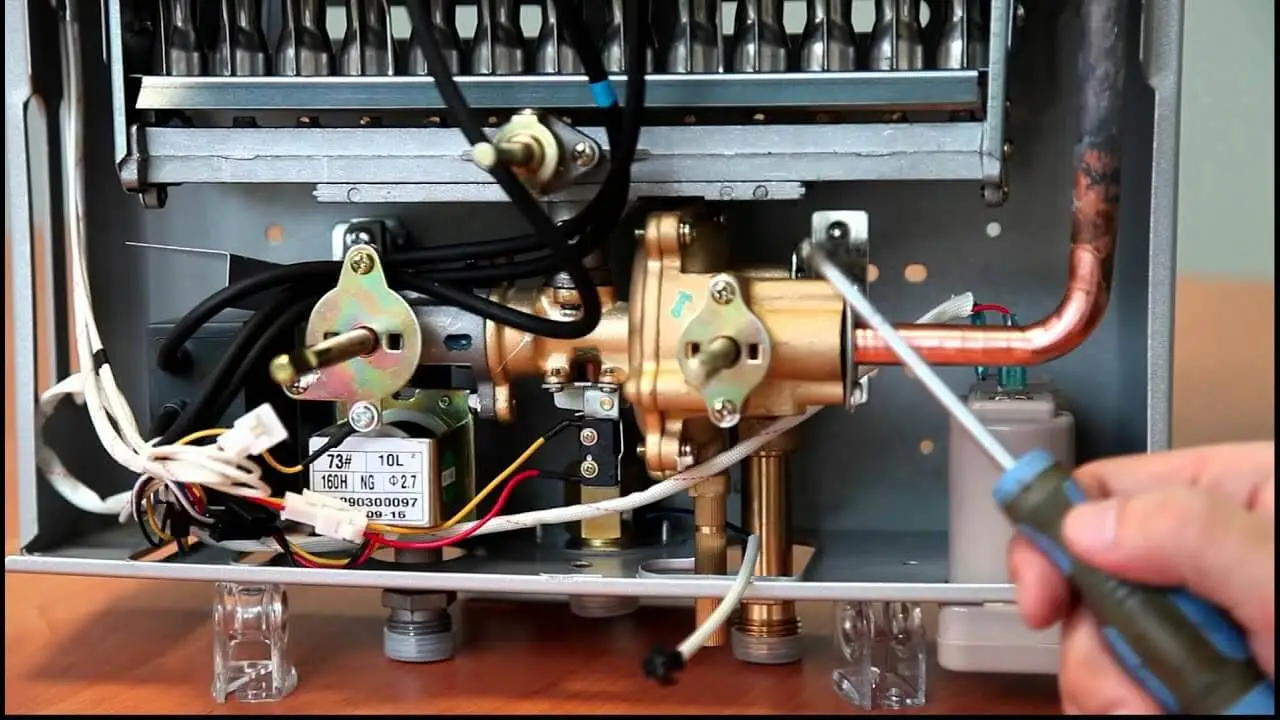Which water heater makes life more bearable? Electric or gas? Is an electric water heater better than a gas version?
Water heaters are not one size fits all, with price, running costs, environmental impact, and access differing between electric water heaters and gas burning solutions. So maybe your circumstances have changed, or your existing system never actually met the family’s needs.
With hot water accounting for 17 – 32% of a home’s energy bills, it’s a choice that you want to get right.
That’s why we weigh up the pros and cons of electric and gas-burning options to help homeowners make well-informed decisions regarding their next hot water heating system.
So Is An Electric Water Heater Better Than Gas?

Compared to electric water heaters, gas water heaters are way more economical and they give an unlimited amount of hot water for family members. They need to be vented and connected to the gas line, which is not the case with electric water heaters. I would always pick a gas water heater before an electric one.
Another thing to consider is usage location. If you want to use it on just one sink, go for the tankless electric water heater.
Gas Water Heaters
Gas burning systems come in two main forms: instant hot water or the hot water storage tank.
Instant hot water systems are space-saving solutions that heat water passing through the unit, only heating water as required. The hot water storage tank is similar to electric systems but uses natural gas as a heat source.
Here are the pros and cons of using a gas hot water heating system:
Pros
- Lower running costs: In most regions, natural gas or LPG carries a lower price tag per unit when compared to electricity. As fuel prices fluctuate, this could always change. But for now, gas burning water heaters are cheaper to run than their electric counterparts. Electric systems are considered slightly more efficient but not enough to combat the differences in energy prices.
- Longer lifespan: Instant gas hot water solutions are rated for 15 to 20 years, and they can last longer if treated well and serviced regularly. That’s almost double the life of a storage tank system. The water held within a storage tank can slowly degrade the quality of a unit, whereas no water is found in an instant tankless system when not in use.
- Environmental impact: Burning natural gas releases less carbon dioxide into the atmosphere than what’s produced from burning coal for electricity. According to the United States Energy Information Administration, gas emits almost 50% less CO2 than coal. There’s also no long lasting toxic waste produced, giving natural gas a leg up over nuclear power.
Cons
- Higher initial costs
If transitioning from electric to gas, the installation cost can be higher than if installing another electric hot water storage tank. Instant hot water systems also feature a higher purchasing price, so they will always be a more expensive option. However, the unit and installation price is offset by the longer lifespan and reduced running costs.
- Limited output
Instant gas heaters may struggle when providing hot water to multiple faucets simultaneously. Someone running hot water in the kitchen may cause temperature fluctuations and pressure problems for someone in the shower.
As a rule, the tankless unit should be positioned as close to the bathroom as possible. Hot water can also take longer to reach a faucet as it needs to be heated before travelling to the tap or showerhead.
- Limited availability
Not every home is connected to the gas grid, and natural gas is unavailable in some areas. The easy workaround is relying on LPG canisters to heat your water. However, monitoring gas levels can be tricky, and it’s possible to run out of gas before a replacement gas bottle arrives.
Electric Hot Water Heating System
Electric hot water heating systems are reliable and convenient solutions available in many sizes with options suitable for homes and workplaces. A hot water storage tank provides an ample supply of water on demand to use as you see fit, and it automatically fills up as the water is used.
There are also electric instant systems, but these are smaller and reserved primarily for kitchen use. Here are the pros and cons of using a hot water storage tank:
Pros
- Lower installation costs
Hot water storage tanks are cheaper to purchase outright and easier to install, so the cost of a plumber or contractor could also be more affordable. Repairs are also considered easier, so if anything were to go wrong, the expenses could also be lower than if fixing an instant gas water heater.
- Increased safety
Faulty gas appliances can leak, exposing your family to harmful carbon monoxide. An electric hot water storage tank poses no such risks to your health.
- Solar efficiency
Take advantage of solar panels, and you can harness free energy provided by the sun to heat your water with electricity only required as a backup. Some energy providers even offer rebates if you generate more solar energy than required and share it back to the grid.
Read Also: Solar Water Heating Systems
Cons
- Higher running costs
Electricity costs more than gas in most areas, so the costs of running an electric hot water storage tank can be greater than the alternative. The running costs can be reduced by upgrading to a solar system, but solar can also be expensive to install.
- Limited hot water supply
The hot water storage tank is limited to its capacity, so you need to wait for it to heat again once the water is used. Otherwise, expect cold showers, which is not suitable for large families with small kids.
- Large and cumbersome
Hot water storage tanks are large, bulky items taking up space on your property. Smaller homes may find their size a burden or their appearance an eyesore.
Related: What Size Tankless Water Heater To Replace a 50-Gallon
Conclusion
The best hot water heating system for your home is the one that fills your needs and is not essentially the one that’s cheaper to run. Before purchasing, weigh up the pros and cons of an electric hot water storage tank and instant gas hot water systems to determine which is right for you.
Then choose a model that provides enough hot water at a rate that meets the needs of you and your family.
Read Next: Hot Water Recirculation System Problems

Michael Davis is a heating & plumbing expert who currently works as independent contractor in SC. He also writes for Plumbertip.
For almost 10 years he worked on various plumbing tasks across South Carolina.



